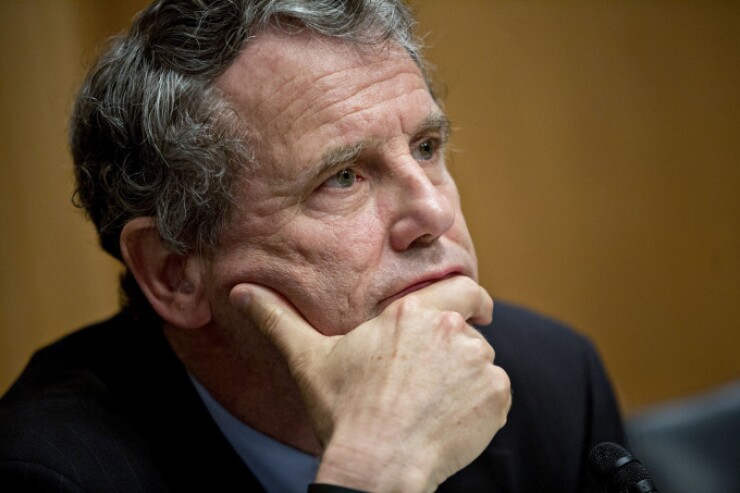Rebuilding America's roads and bridges with funds from the Bipartisan Infrastructure Law is being slowed down by regulations and red tape, but proponents of the legislation point to improvements, even in the troubled public transit sector.
"We are also making critical investments to modernize public transit," said Sen. Sherrod Brown, D-Ohio. "Americans take 21 million trips on transit every day. And when buses and trains and all the infrastructure required to operate them are not up to date, service is slower and less reliable."
Brown chairs the Senate Committee on Banking, Housing, and Urban Affairs. which held a hearing on this topic Wednesday.

Ranking Republican Sen. Tim Scott, R-S.C., challenged the notion of federal government involvement in local transit decisions and noted a preference for block grants to municipalities.
"The one thing that Washington has done poorly is to put on more onerous burdens on local government and state government because somehow 535 people of Washington seem to know everything about local needs," said Scott. "And yet, we seem to know nothing about getting the job done."
The direction and speed of infrastructure spending continues to attract
The computations for spending are more complex due to qualifications imposed by the Build America, Buy America Act that's included in the BIL.
"Provisions of the Build America, Buy America Act although well-intentioned, appear to be inhibiting project delivery," said Dr. R. Richard Geddes, founding director, Cornell Program in Infrastructure Policy.
"In the laws' zeal to assist U.S. domestic manufacturing, it has created conflicting policy objectives and significant confusion among providers."
Geddes does favor the move on section 80403 of the legislation that increased the national limit on Private Activity Bonds for qualified highway or surface freight transportation facilities from $15 billion to $30 billion.
Geddes also calls for an expansion of public private partnerships starting with rebuilding the Francis Scott Key Bridge in Baltimore Harbor.
"The central aspect of a PPP is that it bundles or wraps the design and construction of a piece of infrastructure together with its operation and maintenance over the long term, such as 25 or 30 years," said Geddes.
"Because the Key Bridge featured all-electronic tolling, a user-fee funding source already exists to help pay for the new bridge, especially for maintenance over time."
Despite the BIL's regulatory red tape, Democrats have been laying the
"The steel, iron, pipes and other construction materials used in these projects are being made in Ohio and across the U.S., by American workers, not imported from China," said Brown.
"Whether they're pipefitters or bricklayers or ironworkers or steelworkers, these are good, middle-class jobs with high wages and on-the-job training opportunities, where you can develop a craft and build a career."
National Environmental Policy Act requirements also drew heavy fire. "It can take up to two years for the planning and the programming just to meet federal thresholds so that projects can start," said Scott.
"After that, it can take up to three years whether it's NEPA or other environmental challenges, throw the 'green new steal' on top of all of that, and you recognize that this onerous burden to start a road project can take seven years."





